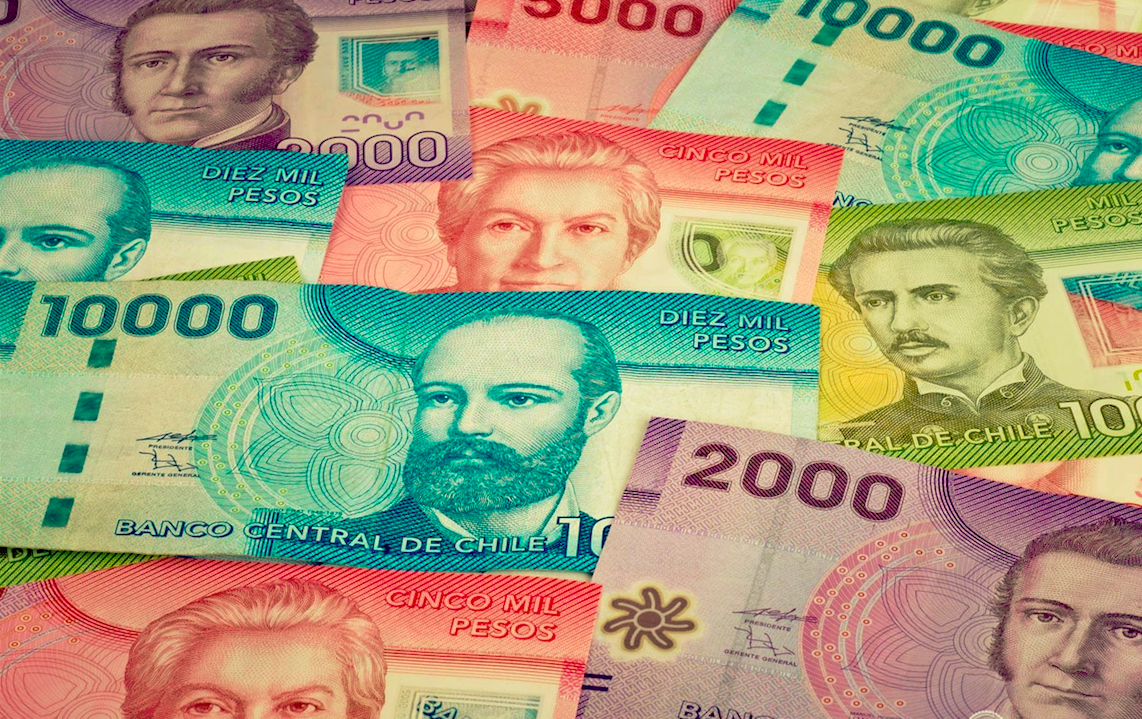ON WEDNESDAY, RIO DE JANEIRO, BRAZIL – Chile’s policymakers may announce the most significant critical interest-rate hike in two decades. Still, even that is unlikely to shore up the battered peso.
The currency has fallen more than 11% in the second half of the year, the worst performance among 24 emerging-market peers tracked by Bloomberg. The peso plunged 2.6% last week alone, its most significant drop in two months.
Read also: Check out our coverage on Chile
The drop came despite the Central Bank raising rates by 75 basis points to 1.5% on August 31 and monetary policymakers preparing to announce more decisive measures again. Many analysts expect a one percentage point hike, the most significant increase since a 300 basis point hike announced in August 2001. The bank has little choice. In September, consumer prices rose 1.2% from the previous month, the fastest pace in more than ten years.

Six out of 12 analysts surveyed by Bloomberg expect a one percentage point increase, while five expect a 75 basis point rise. Felipe Hernandez of Bloomberg Economics expects a 150 basis point increase amid “broad-based and strong” price pressure.
Judging by its September results, even a one basis point hike is unlikely to do much to reverse the peso’s slide. While the currency advanced 2% in the week ending September 3 following the surprise 75 basis point rate hike, it erased all of those gains the following week.
The peso is being affected by increasingly contentious Chilean politics ahead of the November 20 presidential election. According to Bloomberg indexes, peso-denominated bonds have plunged more than 30% this year in dollar terms, lagging all developing-country peers.
The November elections could cement a shift to the left, as the leading conservative candidate has steadily lost support in the polls to a right-wing rival while the left-wing favorite holds steady. At the same time, a new constituent convention is beginning to rewrite the constitution while lawmakers debate the fourth round of early pension withdrawals.
Citigroup recently added a 0.5% underweight to the peso in its emerging market bond portfolio, citing the pension bill as a risk factor, among other concerns.
The impact of the retirement proposals “is already being seen in the exchange rate,” New York-based JPMorgan economist Diego W Pereira wrote in a report to clients on Friday. A weaker currency, coupled with rising energy prices, will result in a more significant pass-through to the CPI, generating “an additional source of upward inflationary pressures.” That negative feedback loop could only be broken when the Central Bank hikes “more aggressively than discounted,” according to Pereira.
The peso now trades at its weakest level since May 2020 and is less than 3% away from the critical support level of $850, reached on April 28 last year. Breaching that level could pave the way for further declines towards the all-time low of $879, recorded in the early days of the pandemic.
The Central Bank will announce two consecutive 100 basis point rate hikes in October and December if no new pension withdrawals are authorized, Creditcorp wrote Friday. If the leaves are approved, the policy rate will need to be raised another percentage point by the end of the year to reach neutral, according to analysts Samuel Carrasco and Daniel Velandia.

